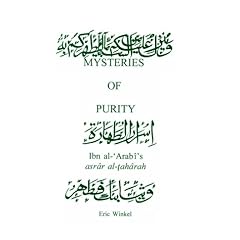Part of a series on the Islamic creed: Aqidah
Shahādah - Profession of faith Salah - Prayer Zakâh - Paying of alms (giving to the poor) Sawm - Fasting during Ramadan Hajj - Pilgrimage to Mecca Tawhīd - Oneness Nabi and Rusul - Prophets and Messengers Kutub - Divinely Revealed Books. Malā'ikah - Angels Qiyâmah - Judgment Day Qadr (Predestination) Shia belive in divine justice beside it
Tawhīd - Oneness Adalah - Justice Nubuwwah - Prophethood Imamah - Leadership Qiyâmah - Judgment Day
 Salah - Prayer Sawm - Fasting during Ramadan Hajj - Pilgrimage to Mecca Zakâh - Poor-rate Khums - One-fifth tax Jihad - Struggle Amr-Bil-Ma'rūf - Commanding good Nahi-Anil-Munkar - Forbidding evil Tawalla - Loving the Ahl al-Bayt Tabarra - Disassociating Ahl al-Bayt's enemies Walayah - Guardianship Taharah - Purity & cleanliness Salah - Prayers Zakâh - Purifying religious dues Sawm - Fasting during Ramadan Hajj - Pilgrimage to Mecca Jihad - Struggle Kharijite Sixth pillar of Islam.
Salah - Prayer Sawm - Fasting during Ramadan Hajj - Pilgrimage to Mecca Zakâh - Poor-rate Khums - One-fifth tax Jihad - Struggle Amr-Bil-Ma'rūf - Commanding good Nahi-Anil-Munkar - Forbidding evil Tawalla - Loving the Ahl al-Bayt Tabarra - Disassociating Ahl al-Bayt's enemies Walayah - Guardianship Taharah - Purity & cleanliness Salah - Prayers Zakâh - Purifying religious dues Sawm - Fasting during Ramadan Hajj - Pilgrimage to Mecca Jihad - Struggle Kharijite Sixth pillar of Islam.This article is about Hygiene in Islam.
For the Jewish Taharah ritual preparation for burial, see Bereavement in Judaism, preparing the body — Taharah.
Purity (Arabic: طهارة, Tahara) is an Ismaili pillar of Islam.
The Quran says: "In it there are men who love to observe purity and allah loves those who maintan purity" (surah At-Tawbad V 108 Part)
Observing cleanliness of the body, the clothes and the surroundings is obligatory upon every muslim, and this is considered as one of the pillars of Islam for the Ismailis.
Before offering prayers it is necessary to perform wudhoo and in certain cases Wudhoo and Ghusl both. The purifying agent is always pure water. However, during times when water is not available or is scare, symbolic wudhoo and Ghusl can be performed with clean dry warth which is know as 'Tayammum'.
If the body or clothes show traces of blood, puss, urine, faeces, semen or alcohol then Taharat becomes essential. The clothes should be washed and the affected part of the body cleaned with pure water or the whole body given as Ghusl as the case may be.
A person must not touch the Quran if the person is mot in the state of Taharat. The Quran says: "None shall touch it but those who are clean." (Surah Al-Waaqeah V 79)
Cleaning teeth is also very important. Muhammad is reported to have said that the angels of mercy turn away from a person whose mouths emits foul smell because of unclean teeth. It is not only unhygenic to neglect cleaning teeth but also an anti-social habit likely to repel people from one's presence.
Smoking
The mixed views on the subject came about because cigarettes are a more recent invention and did not exist at the time when the Qur'an was written in the 7th century A.D. Therefore, one cannot find a verse of Qur'an or words of Muhammad saying clearly that "Cigarette smoking is forbidden." However, there are many instances where the Qur'an gives us general guidelines, and calls upon Muslims to use their reason and intelligence, and seek guidance from Allah about what is right and wrong. It is universally understood that cigarette smoking causes a number of health problems that often ultimately result in death.

 Lefthit
Lefthit
No comments:
Post a Comment